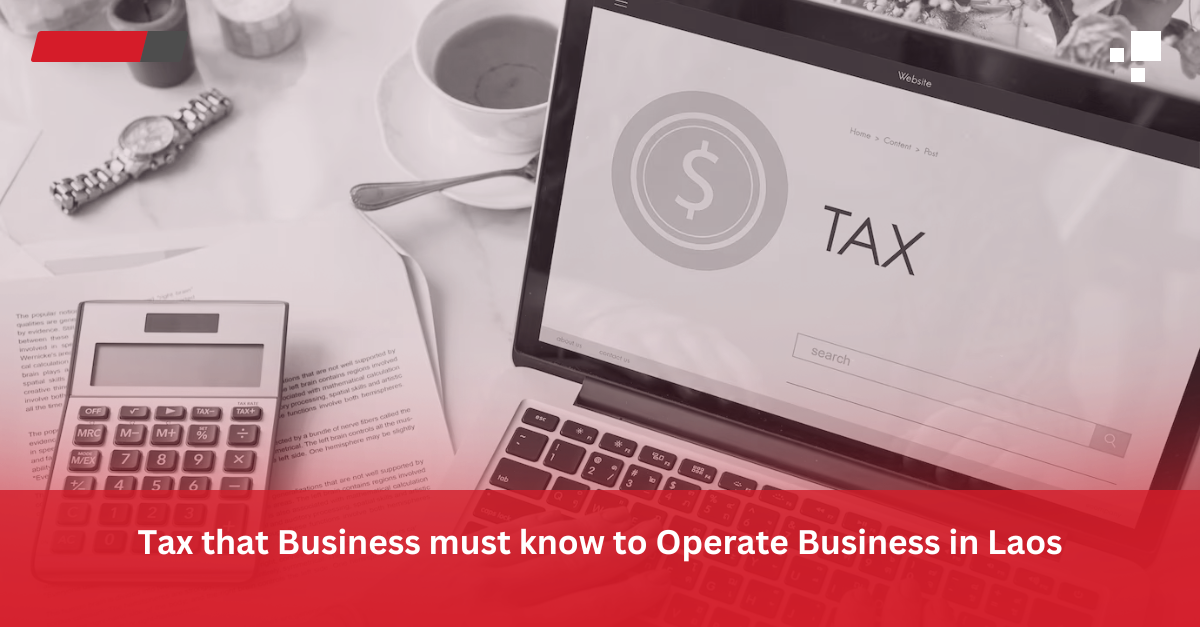No products in the cart.
An in-depth guide for SMEs in Laos covering corporate income tax rates, filing obligations, deductions, incentives, compliance challenges, and best practices.

Small and Medium Enterprises (SMEs) are the backbone of the Lao economy, contributing significantly to employment, innovation, and local trade. However, tax compliance often becomes a challenge for SMEs due to limited resources and evolving tax regulations. This article provides a comprehensive overview of corporate tax rates, obligations, deductions, and compliance requirements for SMEs in Laos.
The corporate income tax (CIT) system in Laos applies to both domestic and foreign-owned SMEs. Key rates include:
- Standard CIT: 20% on net profit, applicable to most businesses.
- Natural Resources: Mining and hydropower projects can face rates up to 35%.
- Special Economic Zones (SEZs): SMEs operating in SEZs may enjoy reduced CIT rates, sometimes as low as 10% for the first 5–10 years.
- Foreign Investors: Subject to the same rates as local businesses, with specific incentives available depending on the sector.
Understanding these rates is critical for SMEs to plan their tax strategy and avoid unexpected liabilities.
SMEs in Laos are required to adhere to strict filing obligations, which include:
- Annual CIT Return: Must be filed by 31 March of the following year.
- Monthly Advance Tax: Some SMEs must pay advance corporate taxes based on projected revenues.
- VAT: SMEs with annual turnover above LAK 400 million must register for VAT at 10%.
- Withholding Tax (WHT): Applies to dividends, royalties, interest, and payments to foreign contractors.
Failure to comply with these obligations may result in significant penalties and even business license suspension.
The Lao government offers SMEs several deductions and incentives to encourage compliance and growth:
- Employee Training: Expenses for training Lao staff can be double-deducted.
- R&D: Research and development costs related to technology and innovation are deductible.
- Agriculture and Priority Sectors: SMEs in priority industries such as agriculture may receive partial or full tax exemptions.
- Infrastructure Projects: SMEs contributing to national infrastructure can qualify for special tax relief.
By taking advantage of these deductions, SMEs can reduce their effective tax burden while supporting government development goals.
Despite these incentives, SMEs often face compliance challenges, such as:
- Record-Keeping: All accounting must be maintained in Lao language and Lao Kip currency.
- Late Filing: Penalties for late CIT filings can range from LAK 500,000 to 2,000,000.
- Cash Flow Issues: SMEs with irregular income may struggle to meet advance tax obligations.
- Audit Risks: Failure to comply can trigger audits, leading to additional scrutiny and fines.
These challenges highlight the need for SMEs to adopt structured financial practices and seek expert advisory.
To minimize risks and maintain smooth operations, SMEs should adopt the following practices:
- Hire Professional Advisors: Tax consultants can ensure compliance with evolving regulations.
- Use Accounting Software: Automating bookkeeping reduces errors and ensures accurate reporting.
- Plan Ahead: Forecasting revenues and expenses helps SMEs manage advance tax obligations.
- Maintain Documentation: Proper invoices, receipts, and contracts are essential to support deductions.
Following these best practices strengthens SME compliance and positions businesses for sustainable growth.
Corporate taxation is a critical responsibility for SMEs in Laos. Understanding tax rates, filing obligations, and available deductions can significantly improve compliance and reduce financial risks. By adopting best practices and leveraging incentives, SMEs can focus on expanding their businesses while staying compliant with Lao regulations.
CITS Laos offers tailored tax compliance and advisory services specifically designed for SMEs. Our experts assist in preparing corporate tax returns, managing VAT and withholding tax, and identifying available deductions. By partnering with CITS Laos, SMEs gain the confidence to meet all compliance obligations while optimizing tax efficiency and focusing on long-term growth.